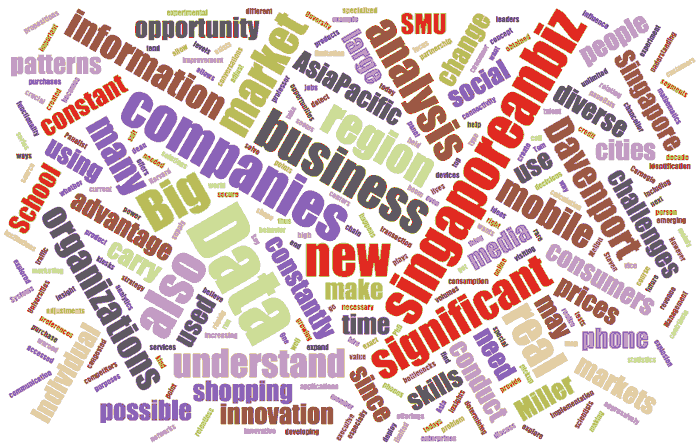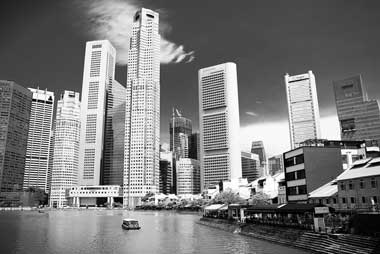In the special series part seven staring at the growing start up prospects at Singapore, Michael Stoss from Voice2Choice start up explains the confrontation during the development and practical implementation of new technology to the extent where it can be introduced in the market. SINGAPORE: It has been initiated by the means of bedtime stories and soft toys. During 2007, Mr. Michael Stoss had been working in the Kuala Lumpur situated in Malaysia. He was intending to tell the stories of bedtime to godson who was situated in Germany, but time difference was a big hurdle and very difficult to cope with. On a bright day, Stoss was thinking about the transformation of his original voice as the speaker of fairy tales or bedtime stories. He found that there was no evident solution in form of software.
He again stuck with an idea to create an application in form of soft toys for those children who are hospitalized and enable those toys to speak the in voices of their grandparents and parents. Children who are admitted in the hospital find the soft toys comfortable, but if they hear the toys speaking in familiar voice, it would enable them to speed up their recovery process. Mr. Stoss began to work on the development of application and this technology further evolved Voice2Choice.
WONDERFUL POTENTIAL
Beyond soft toys and bedtime stories, Mr. Stoss further determined the other potential benefits of the application in other areas. He further proclaimed that this software can be used in movie dubbing. He told that the TV shows and movies that run in Germany are mostly dubbed by Actors. Suppose, your movie has a lot of characters, for instance you need 20 to complete your dubbing, you will be requiring 20 while with the Stoss's technology, you will not require so many.
With Stoss's application, you will only need a child, women and a man. With the combination of these three voices, you will be able to make the other voices of characters as well. This will further save the movie company from expenditure of extra money and time. The scenario will be the same with the industry of gaming as well. With the advent technology developed by Stoss, game producers can be offered with the variety of voice variations.
SLIPPING BLOCKS
The theories and ideas can progress the product to the money making road where it can get the assistance from the external agencies. In case of Voic2Choice, a number of sources were offered by the Singapore for help. Technology & Research (A*STAR), the Agency for Science is helping the company under the T-UP proposals. Furthermore, it is the part of the scheme that is offered by the A*STAR to provide the funds in partial as salaries along with the seconding of engineers and scientists to medium and small enterprises. It has further acquired the grant under Technology Enterprise Commercialisation Scheme starting SPRING Singapore.
Under Private zone, the application is being tested by the means of different media and trials along with the videogame producers.
Mediacorp programme for Mediapreneur is also supporting Voice2Choice that further offers seed funding for startups along with the networking, mentoring and working spaced along with the packages comprising attractive media to boost their development and growth.
Mr. Stoss further stated that they have big players behind them such as largest companies of media and Government of Singapore shows sheer trust on the company and it will further help to find the potential partners and investors. But, there exist slippery blocks.
After past 10 years, Mr. Stoss still remain unable to fulfill his dream to make his bedtime stories audiobook for his godson. First challenge that have faced is in the technology as voice has complex nature and shows uniqueness, it can be resembled to the fingerprint. Stoss further added that the elements like accents, rhythm and intonation along with the pronunciation are the core things which are unchangeable.
He further added that he is unable to change the Australian or Scottish accent and convert their voice to be speaking in English. With the underlying technology, pitch is another problem along with the possibilities with limits in order to create high-pitched deep voices. The company also requires the potential investors along with another underlying challenge. Investors are more interested in the profits, the technology is under the further development to yield the better outcomes. To meet the challenges, the company is giving its utmost efforts for research. The description of human voice is based on several parameters, while these parameters are not having yet researched well. Stoss further added that this area needs further research.
Stoss further added that the company needs experts in the technical field such as processing of digital signal. The experts are not easily available and hence are expensive. So Mr. Stoss added that it is a challenge for start-ups. There are several ways in he pipeline that enable the users to determine the technologies according to their needs. Stoss stated that they are intending to create a platform, a mobile application where the users will be able to create and upload their own voices. These two approaches are being utilized to address the investor's challenge so that the company can convince its investors about the working technology and dominated the market.




